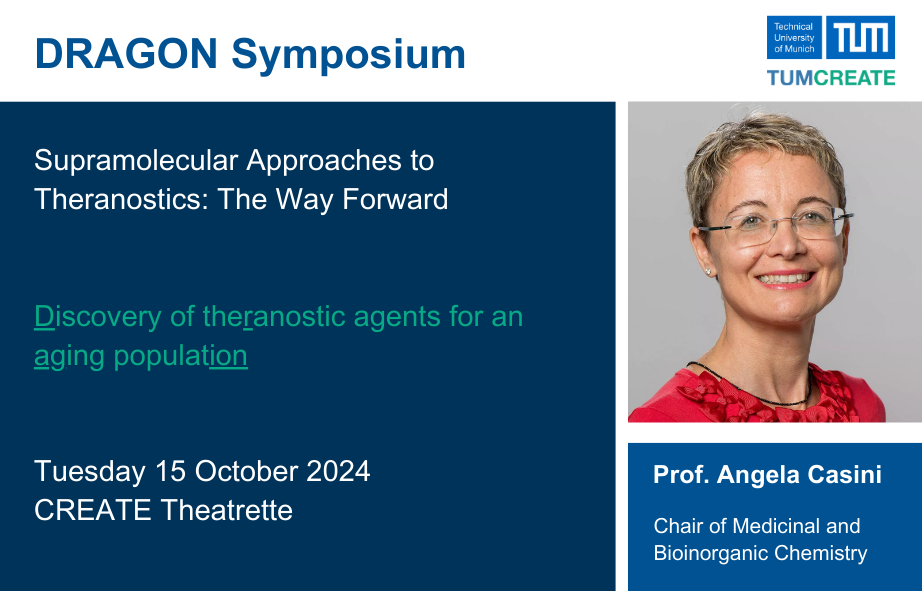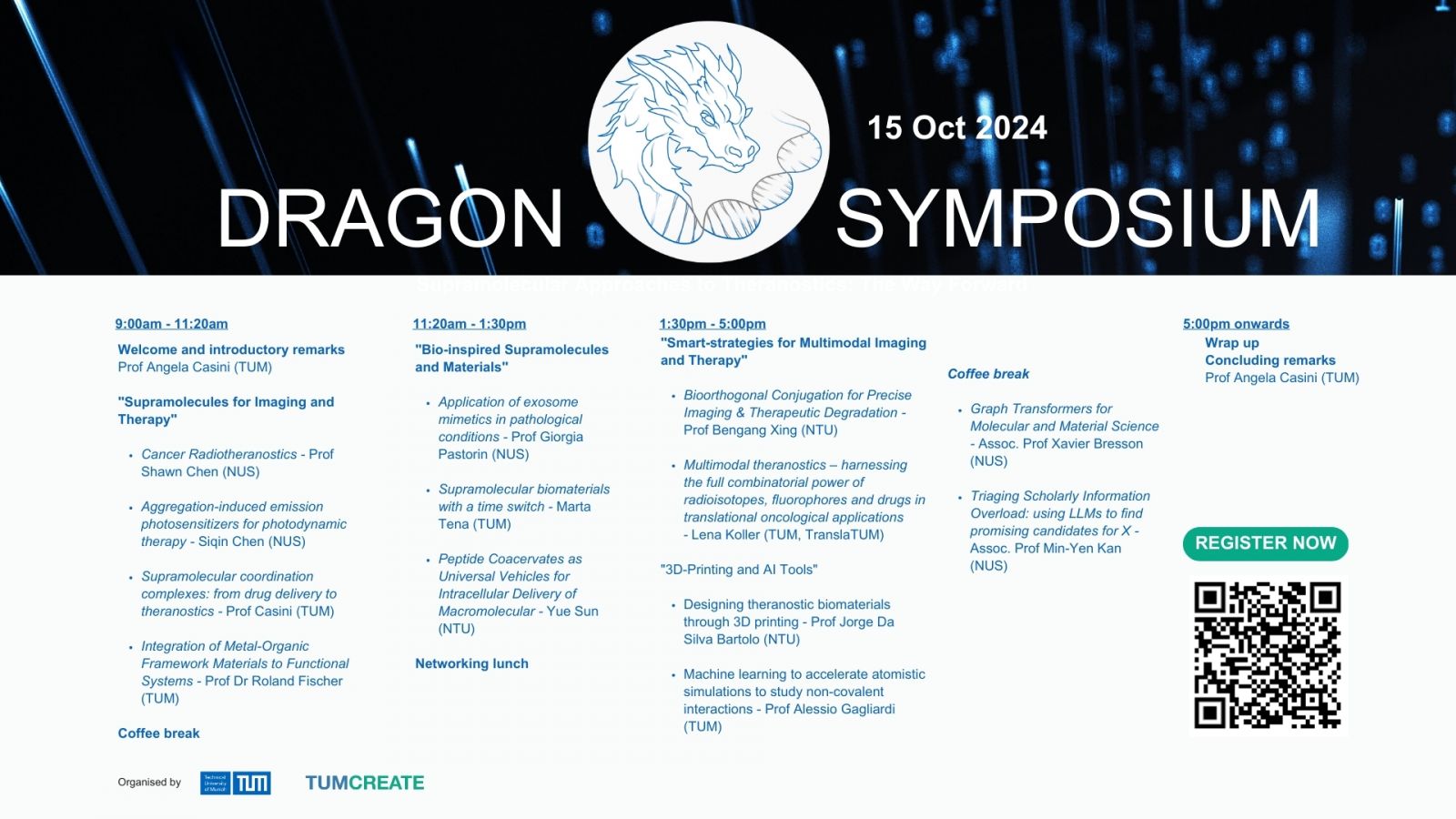- AquaCycle
- Proteins4Singapore
- Singapore's Pathway to Carbon Neutrality
- CellFACE
- LightSPAN
- Computational Modelling Group
- Energy and Power Systems Group
- SITEM - Singapore Integrated Transport and Energy Model
- MoVES (Mobility in Vehicular Environments at Scale) lab
- Projects
News

DRAGON Symposium 2024: Spotlight on host Prof Casini Chair of Medicinal and Bioinorganic Chemistry at TUM
01.10.2024Save the date if you are passionate about drug discovery! The DRAGON (Discovery of theranostic agents for an aging population) Symposium, organised by TUMCREATE and hosted by Prof Angela Casini, Chair of Medicinal and Bioinorganic Chemistry at the Technical University of Munich (TUM) will be held on 15 October 2024.
The event, themed "Supramolecular Approaches to Theranostics: The Way Forward," will explore pioneering research on supramolecules and self-assembled materials, theranostics, and innovative strategies for imaging and therapy. It offers valuable insights into emerging trends in drug discovery and precision healthcare with speakers from TUM, National University of Singapore (NUS) and Nanyang Technological University (NTU).
We had a chat with Prof Casini, a leading expert in medicinal and bioinorganic chemistry on what attendees can expect and how her expertise in supramolecular approaches at TUM directly connects to the Symposium.
Prof Casini's research at TUM aligns closely with the DRAGON Symposium, drawing on her extensive expertise and expanding the range of supramolecular approaches that can be applied as next-generation multifunctional theranostic agents.
Biomedical applications of metal-based compounds for therapy and imaging, and the roles of metal ions in biological systems has always been intriguing for her.
“The pursuit of new concepts in drug design, while bridging the gap between basic research and clinical applications, is my goal,” says Prof Casini who began her research journey in her hometown of Florence, Italy and has a background in inorganic chemistry.
One of her research interests include novel design strategies for metal-based molecules and materials. This includes supramolecular coordination complexes, applied in various domains of chemical biology, bioanalytical chemistry, radiochemistry, drug delivery and regenerative medicine.
“Besides small molecule metallodrugs, my research broadened to supramolecular structures based on noncovalent interactions. Over the years, I developed a highly interdisciplinary investigational approach. In addition to synthetic inorganic chemistry and structural characterisation of new metal compounds, our group strongly focuses on intensive biological evaluation as potential therapeutic and imaging agents for cancer treatment. We also investigate their mechanisms of action via biophysical and analytical techniques coupled to pharmacological methods,” she continues.
If you are passionate about drug discovery, the DRAGON Symposium offers a valuable opportunity to learn and network with leading scientists and industry experts in the field.
Some scientific highlights include recent results on the assembly of a new generation of radiopharmaceuticals with supramolecular theranostics; the 3D-printing of metal organic frameworks (MOFs) for biomedical applications; bioinspired supramolecular materials as drug delivery systems; ML applied to the understanding of noncovalent interactions via the acceleration of atomistic simulations.
“The presentations will feature senior scientists but also early career postdoctoral researchers who bring all their out-of-the-box ideas, energy and enthusiasm to the event,” says Prof Casini.
The future of medicinal chemistry and precision healthcare is an exciting space to watch. For her, the opportunity to “broaden the chemical space to material design via the control of noncovalent interactions is attractive and recent discoveries in the area of targeted radio-theranostic agents shows that it is possible to accelerate the bench-to-bedside process.”

The DRAGON Symposium offers a valuable opportunity to learn and network with leading scientists and industry experts in the field. Register now to be part of this groundbreaking event: here.
Contact:
Corporate Communications TUMCREATE
1 CREATE Way
#10-02 CREATE Tower
Singapore 138602Media and Communications
communications@tum-create.edu.sg

